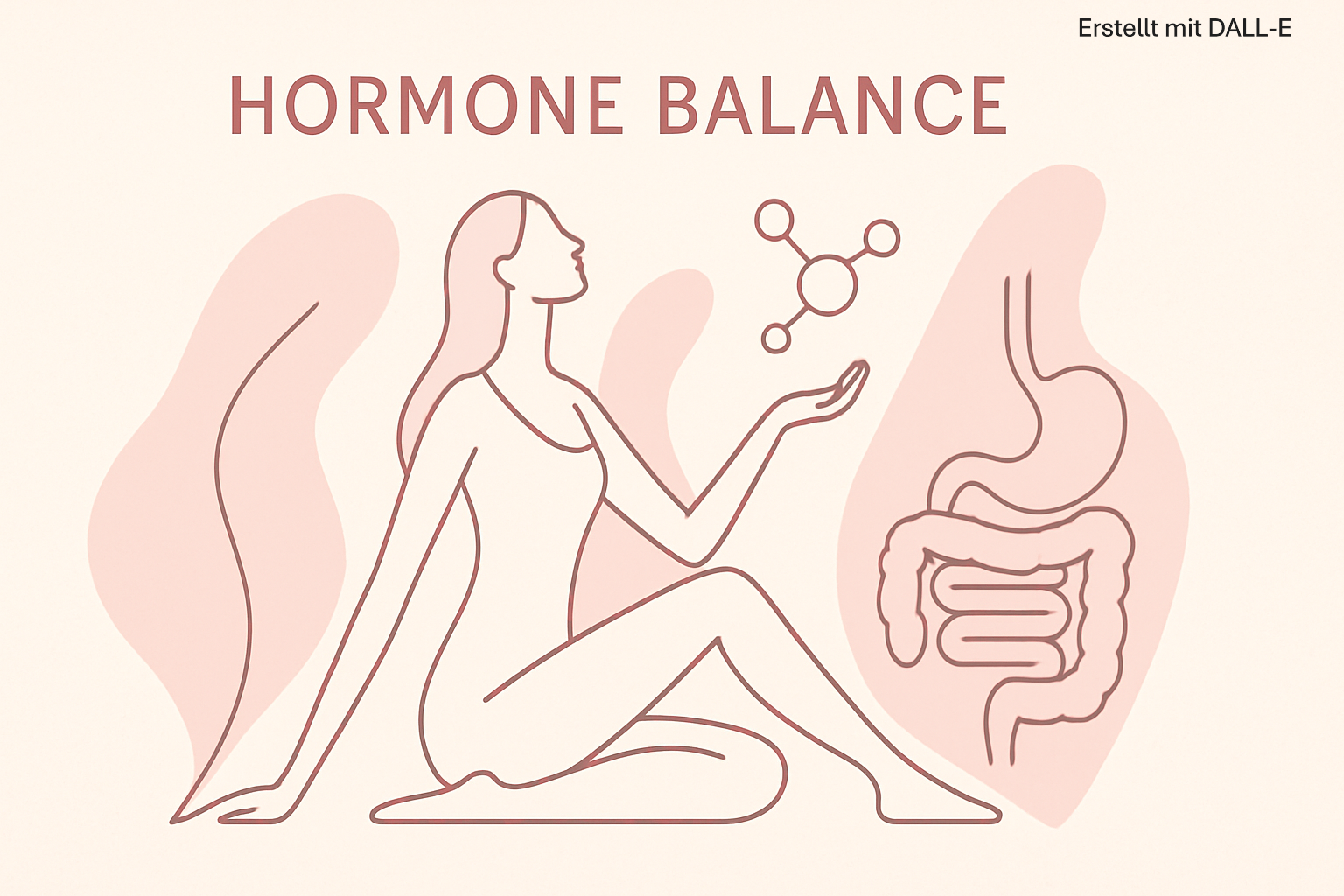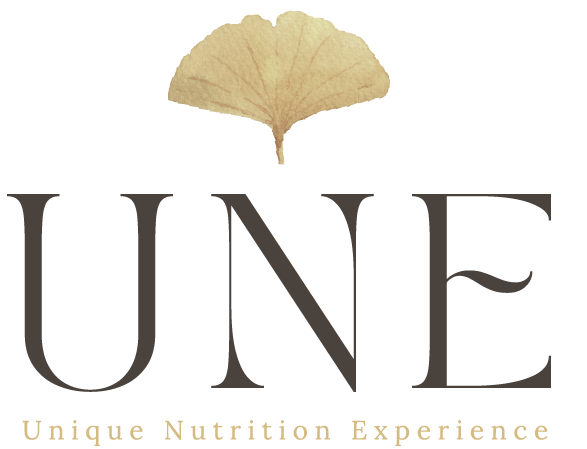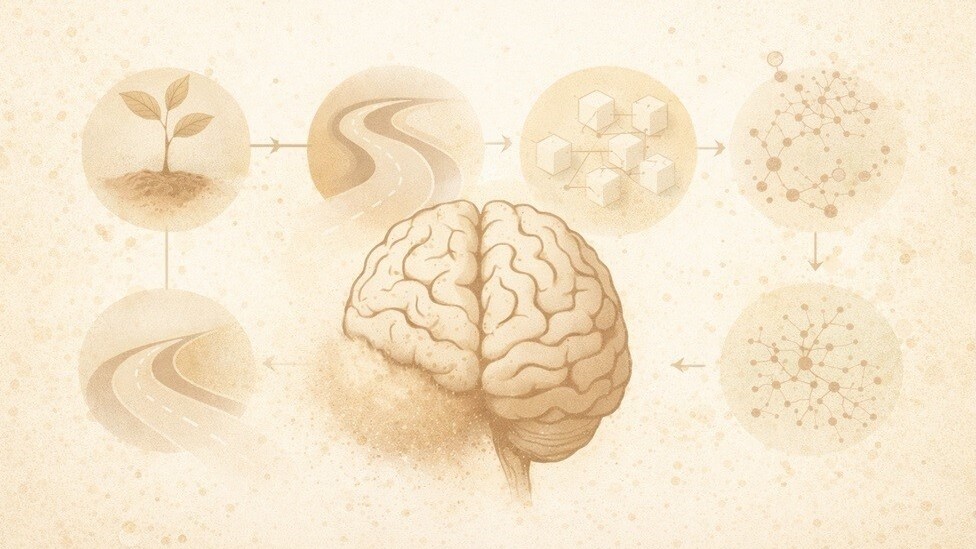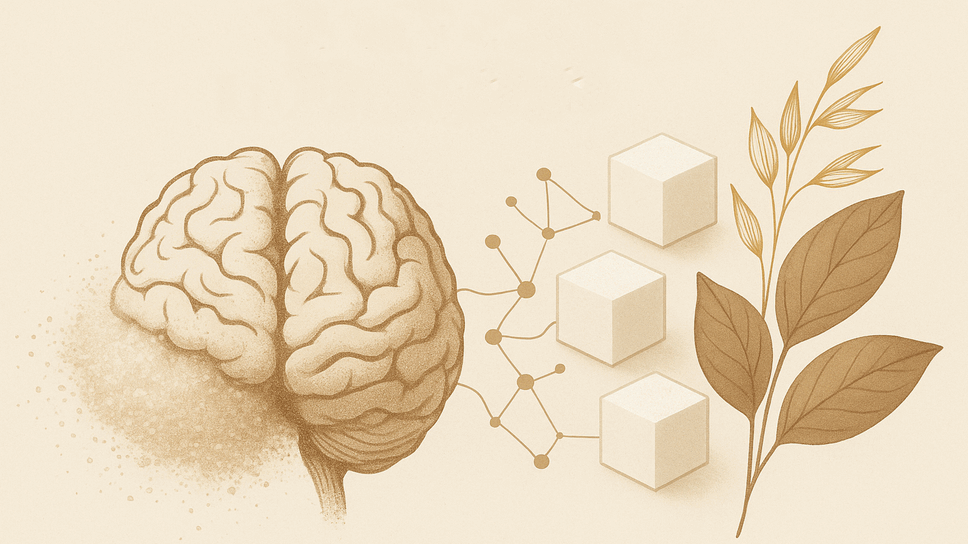
Hormones & Nutrition: How Our Lifestyle Influences Hormonal Balance
How Hormones and Nutrition Are Connected – And What Role Our Gut Plays
Hormones control nearly every process in the human body – from sleep and appetite to metabolism, fertility and our internal sense of balance. Yet many people only begin to understand their importance when things start to feel “off.”
In this article, we take a clear, evidence-based look at the role of hormones, nutrition, and how UNE FOODS consciously supports hormonal balance through mindful food choices.
What Exactly Are Hormones?
Hormones are biochemical messengers that relay signals throughout the body. They’re produced mainly in glands such as the thyroid, ovaries, testes or adrenal glands. But the gut also plays a central role in hormone regulation via its enteroendocrine cells and microbiome.
These enteroendocrine cells are hormonally active – they produce hormone-like substances such as GLP-1, ghrelin, cholecystokinin (CCK), and PYY, which influence appetite, insulin secretion and energy balance. More than 90% of the body’s serotonin is produced in the gut – a neurotransmitter with hormone-like regulatory effects. The microbiome also indirectly affects estrogen metabolism via the so-called estrobolome – the collection of gut bacteria that help break down or recycle estrogens like estradiol.
What Disrupts Hormonal Balance?
The hormonal system is sensitive and easily thrown off balance. Key disruptors include:
- Chronic stress (increases cortisol, lowers progesterone)
- Sleep deprivation (disrupts melatonin and insulin regulation)
- Unbalanced diet (e.g., excess sugar or saturated fats)
- Lack of physical activity
- Environmental influences such as endocrine disruptors in cosmetics or plastics
Key Hormones: Progesterone, Estradiol, Estriol, Testosterone & DHEA
These hormones are not only essential for fertility but also for energy, well-being and body composition. Especially during perimenopause and menopause, hormonal shifts can affect sleep, skin, mood, libido and fat distribution.
Progesterone
Often called the “calming hormone” – it supports sleep and emotional stability, but is commonly reduced in chronic stress or with age.
Estradiol & Estriol
Two key forms of estrogen. They affect bone density, mood, skin, libido – and their decline during menopause can lead to hot flashes or mood swings.
Testosterone
Relevant for women too – contributes to energy, muscle tone and vitality. A deficiency can lower motivation and libido.
DHEA
A precursor hormone that decreases with age and stress. It plays a role in immunity, energy and skin elasticity.
A well-balanced diet rich in protein, healthy fats and fiber can help regulate hormones naturally – by stabilizing blood sugar, supporting metabolism and providing essential micronutrients such as zinc, magnesium and B vitamins.
Gut & Hormones – The Overlooked Connection
The gut does much more than digest food. It produces signaling molecules like serotonin, helps eliminate excess hormones like estrogen, and is deeply connected to hormone balance via the microbiome.
- Fibers such as inulin or acacia fiber support microbial diversity.
- They bind excess estrogens and promote their excretion.
- They also support detoxification of hormonally active compounds.
Our fiber-rich functional mixes from UNE FOODS are ideal companions in this context. Explore our:
- Protein-Fiber Pizza Dough Mix – high in protein and fiber, lower carb and easy to prepare.
- Tomato-Cheddar Protein Bread Mix – rich in nutrients, featuring tomato powder, cheese and fiber-rich ingredients.
Hormones Need Balance
Hormones don’t work in isolation – they form a complex network that depends on consistency and support. Nutrition is a powerful lever. When we eat with awareness, we create space for change – with clarity, calm and trust in our bodies.
A great example is the hormone GLP-1 (glucagon-like peptide-1), which plays a key role in blood sugar regulation, satiety and insulin release. It is released in the gut – especially when fiber and certain fats are metabolized. GLP-1 is currently at the center of pharmaceutical and nutrition research due to its relevance for weight regulation.
Once again, this illustrates how intelligently our bodies function – and how well-designed nutrition can offer meaningful support. Our 3-in-1 Collagen Chocolate Powder is a perfect example: rich in fiber from cocoafiber and inulin, with Type I & III collagen, essential micronutrients and absolutely no added sugars or sugar alcohols.
This article is for informational purposes only and does not constitute medical advice.
Das könnte dich auch interessieren
19. December 2025
The brain does not age linearly – and that is precisely its strength
Why does learning new languages often feel effortless at a young age, while later in life…
7. November 2025
As good as homemade bone broth – just more modern
The answer from UNE Foods Anyone who has ever made traditional bone broth knows how much…
24. October 2025
Sugar – The Silent Saboteur of Our Brain | UNE FOODS
Sugar affects far more than just blood glucose levels – it shapes how our brain thinks,…




